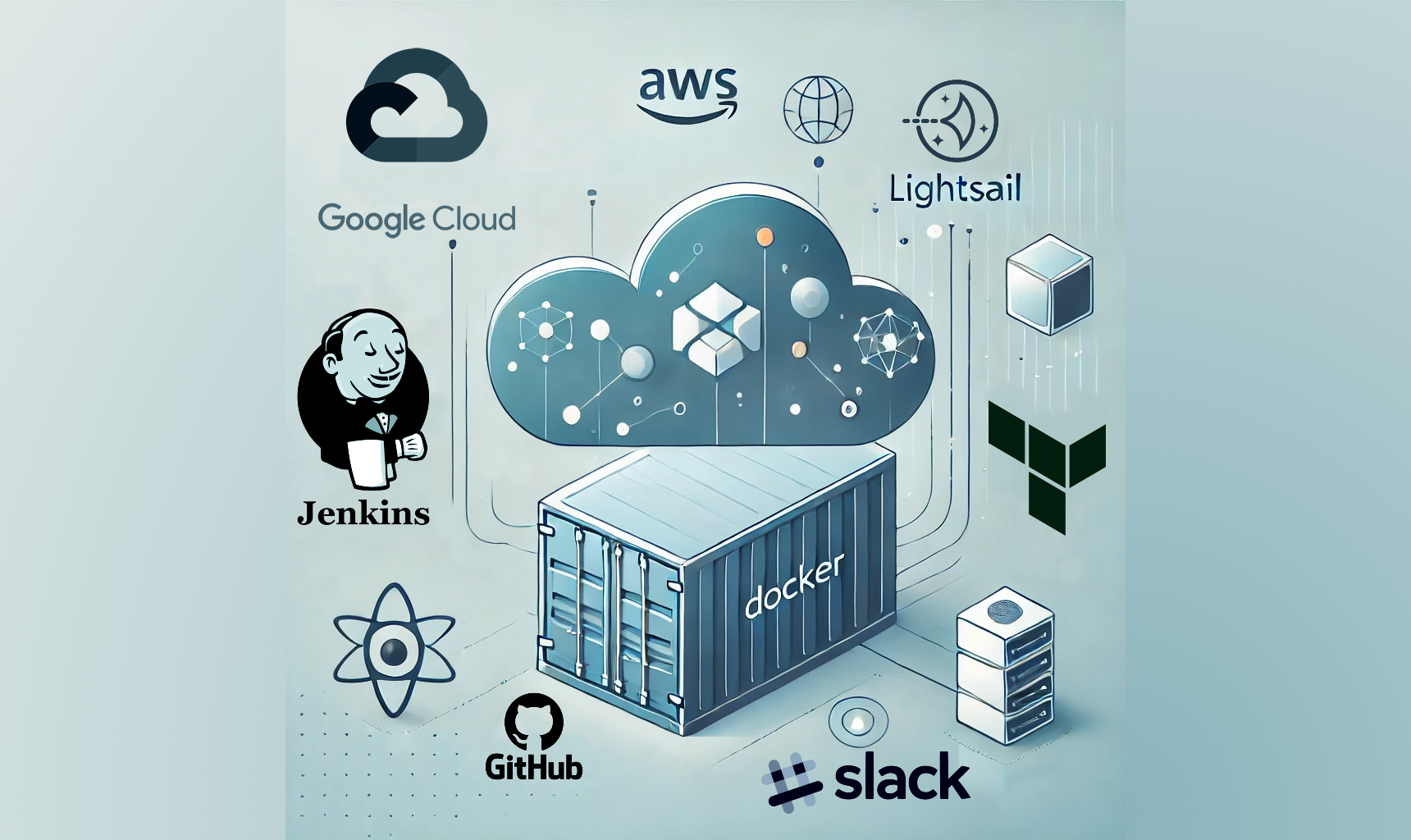· solutions · 4 min read
Integrating Docker with Cloud Solutions and DevOps Tools
Docker containers are revolutionizing the way we deploy applications. This post covers integrating Docker with AWS ECS, Lightsail, and popular DevOps solutions like Jenkins, GitHub, and more.

Streamlining Deployment: Docker Integration with Cloud Solutions and DevOps Tools
In the rapidly evolving landscape of cloud computing and DevOps, containerization has become the go to implementation, enabling developers to create, deploy, and manage applications faster and often more reliable and secure. Below we show you how we can integrate containers on cloud solutions like AWS ECS, Lightsail and GCP and leverage continuous development tools such as Jenkins, GitHub, Atlassian, Terraform, Buildkite, and more in production environments.
Integrating Docker with AWS
AWS ECS (Elastic Container Service) AWS ECS is a highly scalable container management service that allows you to run containers on AWS. By integrating Docker with ECS, we can easily manage containerized applications and clusters, levering AWS elastic scalability, and streamline custom deployment processes. Using standarized Infrastructure As Code (IaC) tools like terraform definitions, we define how task containers should run, for how long, and what resources are needed; all of this without the need of worrying about physical servers, memory constrains and other high availability. ECS offers fairly simple and inexpensive way of hosting any type of business tool within minutes.
AWS Lightsail For simpler applications, AWS Lightsail provides a user-friendly interface for deploying Docker containers. Lightsail allows us to create containers quickly, manage them with minimal overhead, and scale as needed. This is especially beneficial for small to medium-sized applications that require a cost-effective solution without the complexity of full AWS ECS configurations.
Integration we can help you deploy:
Jenkins Integrating Docker with Jenkins allows us to create robust CI/CD pipelines at low cost to our clients. An open source tool like Jenkins can build container images, run system tests, and deploy applications automatically to any cloud services. These type of solutions can be automated to reduce down time and improve customer satisfaction. Integrating Jenkins can improve your day to day tasks and ensure a smooth workflow from development to production, minimizing downtime and enhancing reliability.
GitHub Actions A custom solution for each of your needs. Depending on your companies needs integrating Github actions might be the best way to get your latest software to your clients hands. By using Docker with GitHub Actions, we can automate our workflows right from the repository. Each update, push, comment can trigger a build that creates a new version of your software (image), runs automated tests, and even deploy software to our personal cloud. This seamless integration ensures that our bussines code is always in a deployable state.
Atlassian Tools Integrating CI tools with Atlassian tools like Bitbucket and Bamboo enables efficient version control and deployment processes. With Docker, we can package our applications and dependencies together, ensuring consistent environments across development, testing, and production stages.
Terraform Infrastructure as code practices helps you standarize all your different environments so all your non production environments are almost identical of what your clients use. We can manage our containers, networks, and volumes in a version-controlled manner, making it easy to replicate environments and maintain consistency across different stages of your business development.
Buildkite Buildkite is a powerful CI/CD cloud solution that it’s capabilities can be enhanced by integrating it with your existing operational environment. Buildkite can run builds in containers, ensuring that each build runs in an isolated environment to your specific needs. This allows for reliable testing and deployment processes, irrespective of local configurations.
Slack Adding Slack to your CI/CD workflows keeps our team informed and engaged of each step of the process. We have set up notifications for operational steps, build statuses, deployment completions, and other important events, ensuring that everyone is updated in real time.
Integrating automation tools into your cloud solution and DevOps toolchain could drastically improve your development and deployment processes. By leveraging AWS services and popular DevOps tools, we have streamlined workflows, improved collaboration, and enhanced the overall efficiency of our clients projects. As we continue to explore the possibilities with Docker, we look forward to sharing more insights and best practices in the future.

